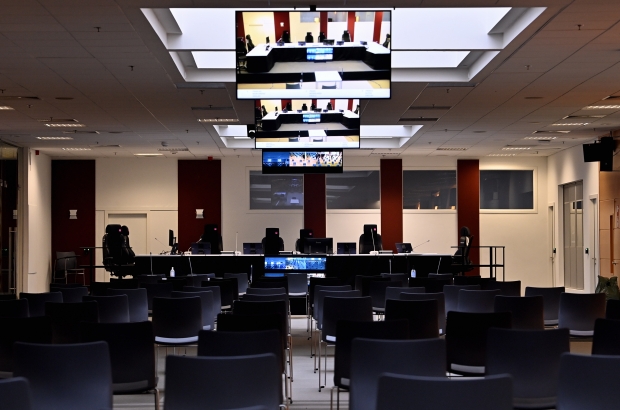- Daily & Weekly newsletters
- Buy & download The Bulletin
- Comment on our articles
Belgium’s biggest-ever drugs court trial begins
Belgium’s biggest drugs-related trial in history is getting under way, with 125 defendants set to appear before the criminal courts beginning this week.
The charges include drug trafficking, arms trafficking, attempted extortion, arbitrary detention and false imprisonment, RTBF reports.
The so-called "mega-trial" is expected to last at least five months and will be held under high security at Justitia, the former Nato site in Evere that has already been transformed into a criminal court for the trial of those accused in the Brussels terror attacks.
Centred around a criminal organisation suspected of running a massive cocaine trafficking operation between South America and Europe, the case presents Brussels as the network's logistical headquarters.
Drugs, imported by merchant ship or private jet, were allegedly received, processed and repackaged in the Belgian capital before being transported to other European countries.
“We estimate [this organisation's] production at one tonne of cocaine per week in Brussels and the surrounding area,” the head of the federal judicial police said in October 2021.
Authorities first became aware of the network after an accidental fire revealed a cocaine-cutting laboratory in Ixelles. Thousands of hours of investigation uncovered six other labs in the Brussels region and two drug extraction sites.
The extraction and cutting processes - done to artificially increase the supply for resale - require the use of large quantities of chemical compounds, including flammable and harmful solvents.
After use, the large drums of chemicals are abandoned, sometimes in the middle of nowhere. One dump site was found on the edge of a playground and picnic area in the municipality of Zemst, 20km north of Brussels. There was also a large depot of cans containing acetone in Overijse, 20km south of the capital.
In July 2020, the French and Dutch authorities announced the infiltration, decryption and dismantling of the encrypted communications network used by underground organisations, a major turning point in the police operation.
Some of the arrests to come from the investigation include individuals already well-known to Belgian authorities for other crimes, and people with connections to Albanian-speaking mafia and the Calabrian mafia the 'Ndrangheta.
The latter is partly why the trial will be subject to extra security measures.


















